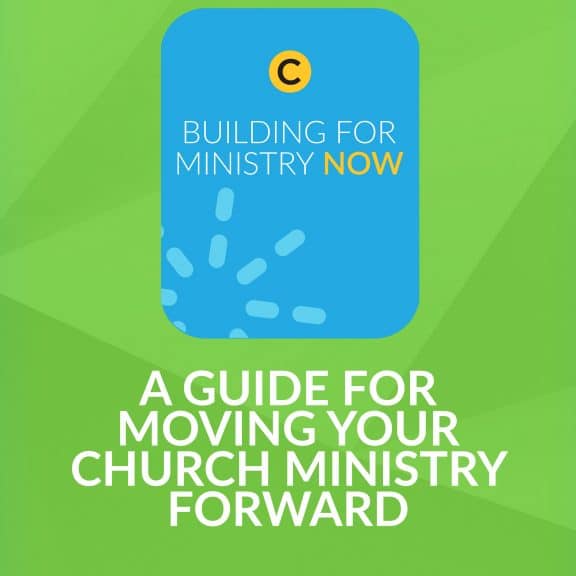I went from being a public-school teacher to a children’s ministry pastor in a matter of months. As with any new job, it took some time to learn the culture and DNA of the church structure. However, it did not take long to figure out that I wanted to make one change sooner rather than later—year-long Sunday morning programming.
Many factors brought me to this conclusion. However, fifteen years later, I can see the benefits of both school-calendar programming and year-long programming. Below I will outline key components when choosing the option that best fits your context.
Leaders in Your Sunday Morning Programming
Leaders play a main role in children’s ministries, and we all know the pains of never having enough of them. When considering year-long vs school-calendar Sunday morning ministry, there are a few things I have learned along the way.
It can be difficult to find leaders during the summer months; however, the group sizes are also smaller, which makes it easier to combine groups if necessary. When we recruited leaders, we invited them into a year-long commitment.
For those unable to serve in the summer months, we encouraged them to invite two parents to observe their groups and take over during the summer months until they returned in the fall. If some leaders could commit to some of the summer but were concerned about not being able to be there the whole summer, we would combine their group with another one of our groups. These two leaders then job-share. This helped keep some consistency for the children.
When we shifted from school-calendar programming to year-long programming, I asked all our leaders to take the summer off. In doing so, I communicated that this is hard work, and you need a break. Some of our leaders did choose to take the summer months off (and that’s okay!), others enjoyed the opportunity to continue building relationships with the children and families each week.

Staff Hours
It is key to consider what other programs you have running during your summer months. Many churches offer Vacation Bible School, which can consume a lot of time. I encourage you to ask yourself some questions as you prepare!
Does your team have the time and resources to offer year-long programming each Sunday during worship or is God calling you to use your staff’s time in other ways?
What does it practically look like to run Sunday morning through the summer from modifying curriculum, prepping supplies, recruiting leaders, and ministering each week?
It is key to consider what other programs you have running during your summer months.
Guests
When we look at the summer months, we notice that many people move during the summer to avoid moving their children in the middle of the school year. With this reality comes many people looking for a church home during the summer months. Even those not moving their families may be trying out new churches in the areas during the summer when schedules aren’t as crazy for families. Therefore, it is essential to consider what first impression you want to give families about how the church values children.
Are children welcome in big church? Are there options for them to learn at their age-appropriate level? Whether you invite the children into the service or provide Sunday school, how can you be intentional in creating a welcome atmosphere that communicates “I see you”?
Age-Appropriate Content in Your Programming
Many parents choose not to bring their children into the Sunday morning worship services for a variety of reasons. Some don’t even know it’s an option because taking your kids to Sunday school or children’s church is just what you do.
By providing school-calendar programming, you create an opportunity for parents and children to worship together. Some people need a gentle nudge to try something they would never have tried on their own. In doing so, it is important to equip parents with what this may look like.
A main question to consider is how your worship service is structured. Have a conversation with your pastors and worship team to discuss how you can make Sunday morning worship inviting to kids!
Can you add a children’s time message or create a children’s table in your worship space? This communicates that children are not only welcome in the service, but you intentionally thought of them. Our children’s table is this filled with various hands-on materials for kids to have during the service.

We have scarfs to use while singing and dancing, nativity stamps, alphabet sermon notes, stickers, felt coloring, age-appropriate Bibles, noise-canceling headphones, and more! We even created age-specific worship bags and gave parents additional ideas of things they could include in their child’s bag.
This bag was theirs to keep and bring back each week.
Meeting the Needs of Those with Disabilities
For some families, sitting in service with their child(ren) with disabilities is next to impossible. Even if you do not offer children’s ministry year-long programming, it is important to consider how you are caring for families who may have unique circumstances.
Do you have a sensory break room? Are fidgets or sensory toys available? A one-on-one buddy?
Each child has different needs and abilities. What needs do the children and families in your church have, and how can you create an intentional space for their understanding and love of Jesus?
Church is not school, and so, there is no hard and fast rule that you should be operating in the same way. Between leaders, staff hours, guests, age-appropriate content, and special needs, assess what is best for your families and context.
Then create an environment where children and families know they are a part of the church body of Christ.
Church is not school, and so, there is no hard and fast rule that you should be operating in the same way.














